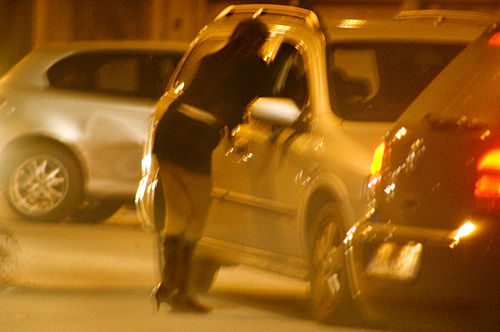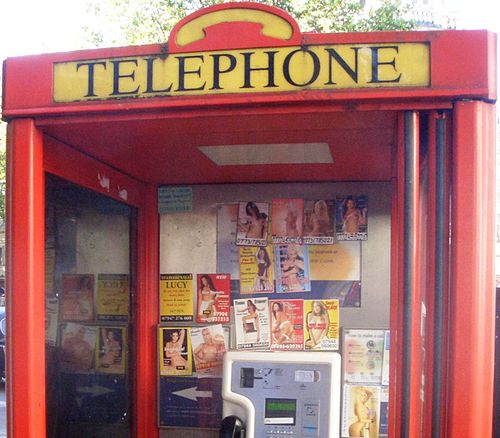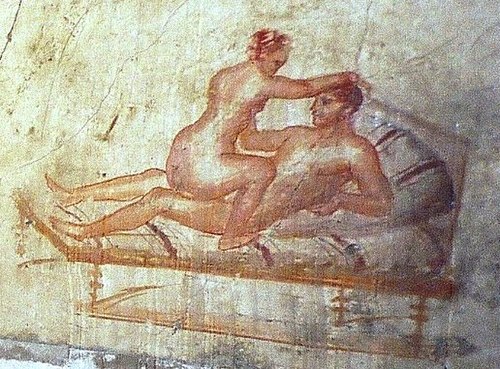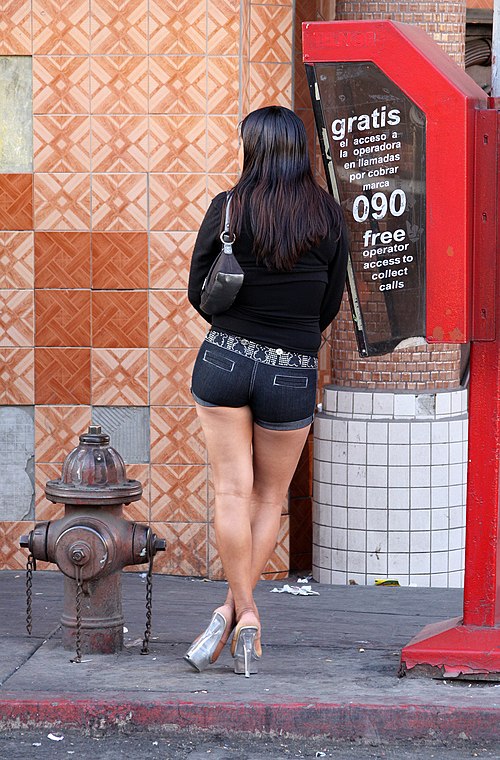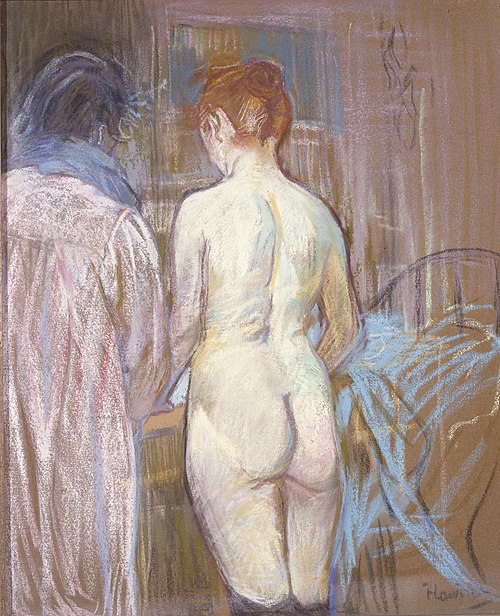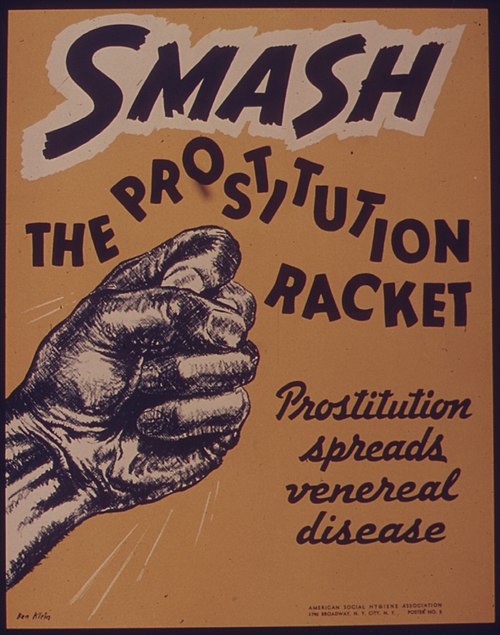Prostitutenoun
A person, especially a woman, who has sexual intercourse or engages in other sexual activity for payment.
Prostitutenoun
(derogatory) A person who engages in sexual activity with many people.
Prostitutenoun
A person who does, or offers to do, an activity for money, despite personal dislike or dishonour.
Prostituteverb
To perform sexual activity for money.
Prostituteverb
(transitive) To make another person, or organisation, prostitute themselves.
Prostituteverb
To use one's talents in return for money or fame.
Prostituteverb
(figuratively) To exploit for base purposes; to whore.
Prostituteverb
To offer, as a woman, to a lewd use; to give up to lewdness for hire.
Prostituteverb
To devote to base or unworthy purposes; to give up to low or indiscriminate use; as, to prostitute talents; to prostitute official powers.
Prostituteadjective
Openly given up to lewdness; devoted to base or infamous purposes.
Prostitutenoun
A woman giver to indiscriminate lewdness; a strumpet; a harlot.
Prostitutenoun
A base hireling; a mercenary; one who offers himself to infamous employments for hire.
Prostitutenoun
a woman who engages in sexual intercourse for money
Prostituteverb
sell one's body; exchange sex for money
Prostitutenoun
a person, in particular a woman, who engages in sexual activity for payment.
Prostitutenoun
a person who misuses their talents or behaves unworthily for personal or financial gain
Prostituteverb
offer (someone) for sexual activity in exchange for payment
Prostituteverb
put (oneself or one's talents) to an unworthy or corrupt use for personal or financial gain
Johnnoun
(slang) A prostitute's client.
Johnnoun
A device or place to urinate and defecate: now usually a toilet or lavatory, but also a chamber pot or outhouse.
Johnnoun
(slang) A generic term for Western men while traveling in East Asia.
Johnnoun
A male mule.
Johnnoun
A proper name of a man.
Johnnoun
a room equipped with toilet facilities
Johnnoun
youngest son of Henry II; King of England from 1199 to 1216; succeeded to the throne on the death of his brother Richard I; lost his French possessions; in 1215 John was compelled by the barons to sign the Magna Carta (1167-1216)
Johnnoun
(New Testament) disciple of Jesus; traditionally said to be the author of the 4th Gospel and three epistles and the book of Revelation
Johnnoun
a prostitute's customer
Johnnoun
the last of the four Gospels in the New Testament
Johnnoun
the name of six kings of Portugal.
Johnnoun
John I (1357–1433), reigned 1385–1433; known as John the Great. Reinforced by an English army, he defeated the Castilians at Aljubarrota (1385), winning independence for Portugal.
Johnnoun
John II (1455–95), reigned 1481–95.
Johnnoun
John III (1502–57), reigned 1521–57.
Johnnoun
John IV (1604–56), reigned 1640–56; known as John the Fortunate. The founder of the Braganza dynasty, he expelled a Spanish usurper and proclaimed himself king.
Johnnoun
John V (1689–1750), reigned 1706–50.
Johnnoun
John VI (1767–1826), reigned 1816–26.
Johnnoun
(1165–1216), son of Henry II, king of England 1199–1216; known as John Lackland. He lost most of his French possessions, including Normandy, to Phillip II of France. In 1209 he was excommunicated for refusing to accept Stephen Langton as Archbishop of Canterbury. Forced to sign Magna Carta by his barons (1215), he ignored its provisions and civil war broke out.

